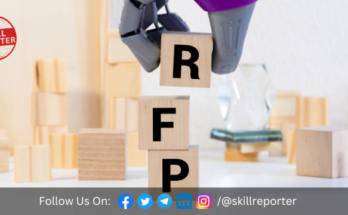New Delhi: The Department of Empowerment of Persons with Disabilities, Ministry of Social Justice and Empowerment organized a National-Level Stakeholder Consultation under National Action Plan (NAP) for Skill Development of Persons with Disabilities on 4th May 2023 at National Institute of Social Defence, Dwarka, New Delhi. The main objective of the consultation was to get strategic inputs on the NAP scheme from the stakeholders based on their experiences as well as formulate multi-lateral collaborations that can develop sustainable models of skilling and employment of PwDs.
The event was chaired by Shri Rajesh Aggarwal, IAS, Secretary, DEPwD and delegates from across the skilling and employment ecosystem including Joint Secretary Shri K. K Dwivedi, Ministry of Skill Development and Entrepreneurship, Shri Rajeev Sharma, Joint Secretary, DEPwD, officials from Ministry of Labour and Employment, Directors/Deputy Secretaries of DEPwD, CEOs of Sector Skill Councils, NGO founders, C-suite leaderships from MNCs and reputed industries, academicians, web accessibility experts as well as more than a dozen Persons with Disabilities achievers actively attended the Consultation.
Detailed presentations were made on the progress of the NAP scheme that is being implemented since 2016. It was shared here that more than 100 thousand PwDs have been trained with a fund release of Rs. 134.75 crore across 28 States and Union territories. The skill trainings are conducted in Short-Term Training Courses for 3 months that include a list of 311 courses related to Customer Relationship Management, Beauty Therapist, Dairy Farmer, , Hand embroider, Domestic Data Entry Operator, Pickle Making technician, self-employed tailor, among others.
In the key note address Secretary, DEPwD termed the consultation as a sensitization workshop for all stakeholders that is aimed at understanding the lived realities of PwDs. This included using appropriate terminology as well as understating in detail the skilling journey of PwDs. With regards to the skill training, the support from Sector Skill Councils and convergence with the Ministry of Skill Development and Entrepreneurship was put forth. Moreover, inclusion of Special Schools and integration of vocational education, Individual Education/Assessment Plans, etc as per the New Education Policy, 2020 was also suggested.
Further it was highlighted that employers/companies should consider PwDs based on their competencies and not as a charity work. Referring to various research studies, Secretary, DEPwD also pointed out that people with disabilities may have a higher “cool-ability factor” and thus excel in areas where non-PwD individuals may struggle. Even with regards to disabilities that require Reasonable Accommodations (RA), Secretary, DEPwD noted that the cost for RA is not more than 1% of the building cost and thus RA, for example, for a person with blood disorder, among other disabilities, can very easily be integrated in any companies’ hiring policies. Lastly with regards to skill training under self-employment, the need to develop models for Mentorship for entrepreneurship and start-up ecosystem was recommended to include maximum PwDs.
More than 100 stakeholders with their unique expertise participated in 06 Round table discussions under the Skilling and Employment working groups. Consequently, each group presented their models and various multilateral collaborations that can take place among the organisations present. Panel discussions on understanding accessible workplaces and inclusive employer practices involved senior leaders from corporates that recruit PwDs. Even a panel discussion on Mentorship for Entrepreneurship, self-employment and start up ecosystem for PwDs was held that included senior leaders from Entrepreneurship Development Institute of India, National Association of Disabled Entrepreneurs, Idea Saksham and Prof. Aneja from All India Confederations of the Blind.
The consultation proved to be a one-of-a-kind opportunity for PwDs as winners of Abilympics, trainees from Nagaland as well as Person with Intellectual Disability and visual impairment who was a participant under the NAP scheme, among many others were provided an opportunity to share their skilling and employment journey with all the stakeholders present. With the moto of ‘Nothing about us, without us’ the Department not only ensured representation of PwDs in every panel but also included their inputs in the strategies proposed by different working groups. The consultation thus proved to be a spark for multi-lateral collaborations among public-private organisations that can develop sustainable models for skilling and employment of PwDs and thus create a path for economic empowerment for Persons with Disabilities (PwDs).



